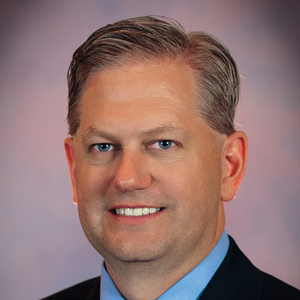Political Giving an Important Piece of Federal Policy Puzzle

July 21, 2014
BY Donnell Rehagen
Biodiesel is the only advanced biofuel commercially available across the country, but it is still a relatively young industry when compared to conventional petroleum fuels. As the industry continues to mature, strong public policy remains critical. The biodiesel industry has long been commended for its advocacy efforts in Washington, D.C., and grassroots lobbying strength, but political fundraising remains an important component of supporting effective public policy and, as of now, has been the only avenue that the biodiesel industry isn’t punching above its weight class in Washington.
The National Biodiesel Political Action Committee is the connected PAC of the National Biodiesel Board. It is dedicated to electing and supporting political leaders around the country who understand the vital role of biodiesel in the nation’s energy policy.
The cornerstone of our industry, the renewable fuel standard (RFS), creates a floor of demand for our product on an annual basis. Needless to say, having champions in the U.S. House and Senate is critical to ongoing success in federal policy. Political giving is an important form of free speech and supporting the members of Congress who support our industry is mission-critical. NBB members contributing to the NBPAC is an efficient and ethical way to do so through a coordinated effort. Others who support the RFS and energy tax incentives provide support to their champions in the Senate and the House, and maybe more importantly, those who oppose renewable energy policies donate big dollar amounts to support their champions.
Advertisement
Advertisement
During the recent NBB membership meeting in Washington, D.C., the biodiesel industry hosted a fundraiser meeting with Sen. Al Franken, D-Minn., in which NBPAC participated. Franken chairs the Energy Subcommittee of the Senate Committee on Energy and Natural Resources. He also participated in a Senate press conference in May on behalf of the biodiesel industry calling on the administration and Congress to restore stable policy.
Past fundraising events the NBPAC has participated in have raised contributions for Sen. Maria Cantwell, D-Wash.; Sen. Chuck Grassley, R-Iowa; Rep. John Shimkus, Ill.-13; Rep. Adam Kinzinger, Ill.-16; Rep. Ed Whitfield, Ky.-01; and others.
Also during the NBB membership meeting, the NBPAC hosted a separate fundraising reception to raise additional funds for future contributions. The PAC’s executive committee is currently planning fundraising events connected with the upcoming November NBB membership meeting and the National Biodiesel Conference & Expo to be held Jan. 19-22 in Fort Worth, Texas.
Advertisement
Advertisement
The executive committee includes a mix of NBB staff and members to help guide the efforts of the PAC to be as effective as possible. Officers include Jennifer Case, chair, New Leaf Biofuel; Ron Marr, vice chair, Minnesota Soybean Processors; Kirsten Skala, secretary, NBB; Donnell Rehagen, treasurer, NBB; Doug Whitehead, assistant treasurer, NBB; Denny Mauser, development officer, Western Iowa Energy LLC; and Tim Keaveney, assistant development officer, Hero BX.
All members of NBB are eligible to become members of NBPAC and there are many ways to make contributions including one-time donations, participation in fundraising events, and even automatic monthly deductions. Additional information on how you can get involved and approval forms can be found at www.biodieselpac.org.
While there is often a stigma attached to political giving in the media and pop culture, it is a vital component of the political process and we know for a fact that RFS opponents are not bashful about making donations to candidates who support their cause. We simply cannot afford to rely on our advocacy and grassroots efforts alone and must do everything we can to support our industry.
Donnell Rehagen, Treasurer,
National Biodiesel Political Action Committee
Related Stories
The U.S EPA on July 17 released data showing more than 1.9 billion RINs were generated under the RFS during June, down 11% when compared to the same month of last year. Total RIN generation for the first half of 2025 reached 11.17 billion.
The U.S. EPA on July 17 published updated small refinery exemption (SRE) data, reporting that six new SRE petitions have been filed under the RFS during the past month. A total of 195 SRE petitions are now pending.
The USDA has announced it will delay opening the first quarterly grant application window for FY 2026 REAP funding. The agency cited both an application backlog and the need to disincentivize solar projects as reasons for the delay.
CoBank’s latest quarterly research report, released July 10, highlights current uncertainty around the implementation of three biofuel policies, RFS RVOs, small refinery exemptions (SREs) and the 45Z clean fuels production tax credit.
The U.S. EPA on July 8 hosted virtual public hearing to gather input on the agency’s recently released proposed rule to set 2026 and 2027 RFS RVOs. Members of the biofuel industry were among those to offer testimony during the event.
Upcoming Events










